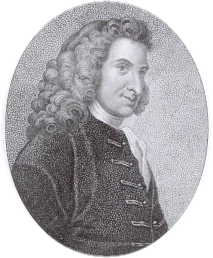On this date in English literary history – August 7,
1754, English novelist Henry Fielding leaves London for Lisbon seeking a
healthier climate. Fielding had suffered from ill health for some time, but his
trip to Lisbon fails to ease his condition. He dies there two months later.
Fielding dropped out of Eton at age 17 and started supporting himself as a
successful playwright. He wrote more than two dozen plays, but his drama career
ended when his satire Historical Register of the Year 1736 enraged the
prime minister. In search of a new livelihood, Jones studied law and edited a
newspaper for several years. Meanwhile, in 1740, Samuel Richardson's epistolary
novel Pamela was published and became enormously popular. A spoof on the
book, called Shamela (1741), was generally credited to Fielding, though
he never admitted authorship. He did admit to writing Joseph Andrews,
another satire, in 1742. In 1748, Fielding was appointed justice of the peace
for Westminster and Middlesex. He played an important role in breaking up
criminal gangs. He published one more novel, Amelia (1751), before his
death in Lisbon, Portugal, in 1754. Fielding's most famous novel, Tom Jones,
was printed in 1749. The novel told the humorous story of the attempts of the
illegitimate but charming Tom Jones to win his neighbor's daughter. The novel
boasted a vast cast of characters and provided a sweeping comic portrait of
18th-century England.
Michael Thomas Barry is the author of numerous award
winning books that includes Literary
Legends of the British Isles: The Lives and Burial Places of 50 Great Writers.
The book was a finalist in the 2014 Next Generation Indie Book Awards and Readers
Favorite International Book Awards. For more information about the author visit
his website www.michaelthomasbarry.com.
His book can be purchased from Amazon through the following link:




